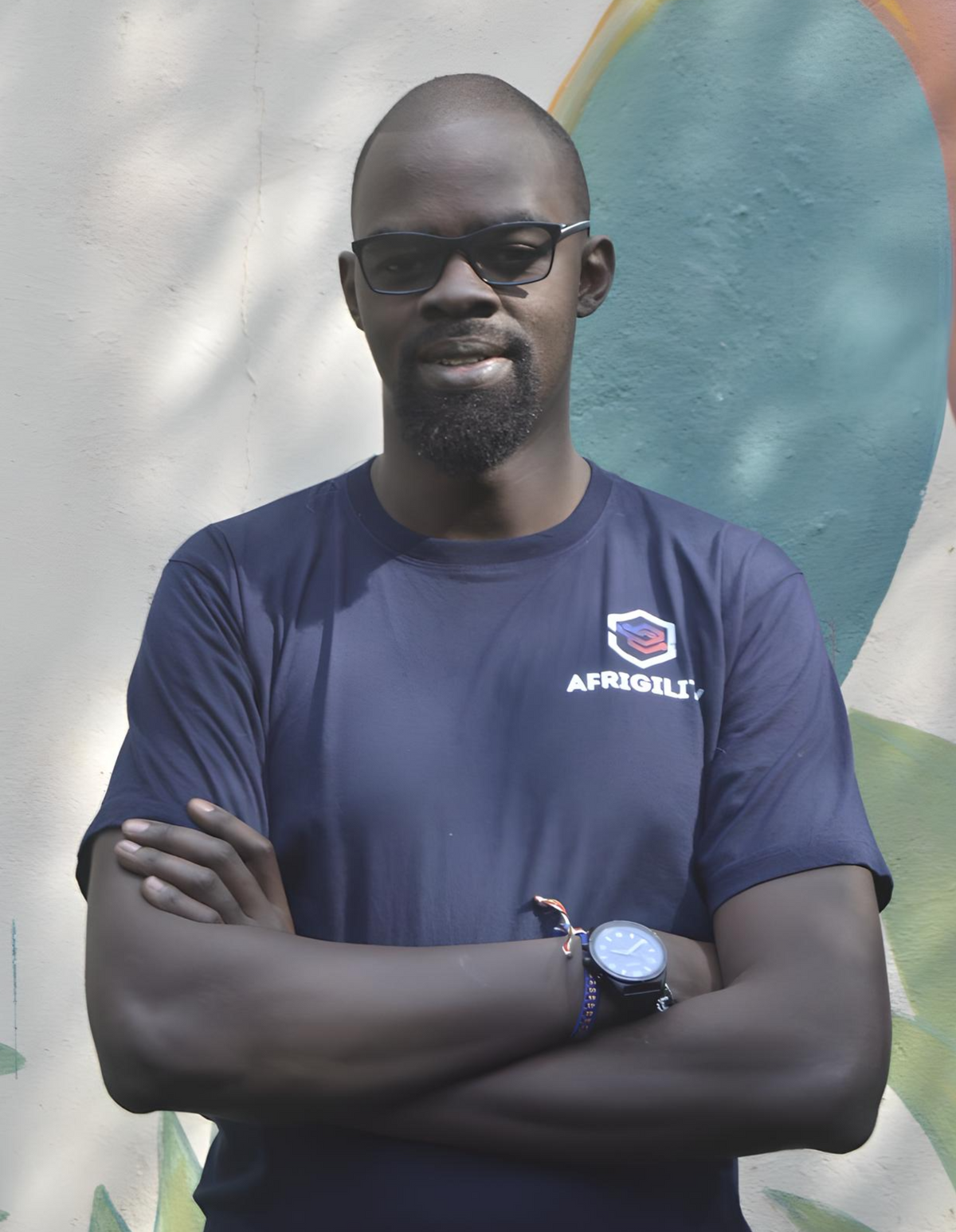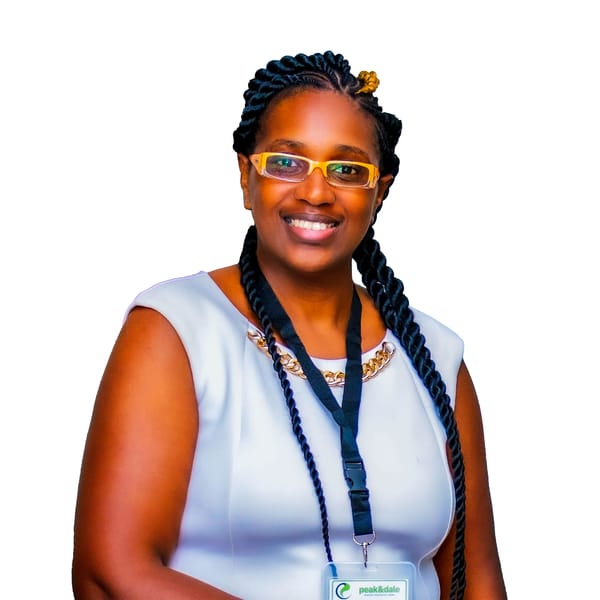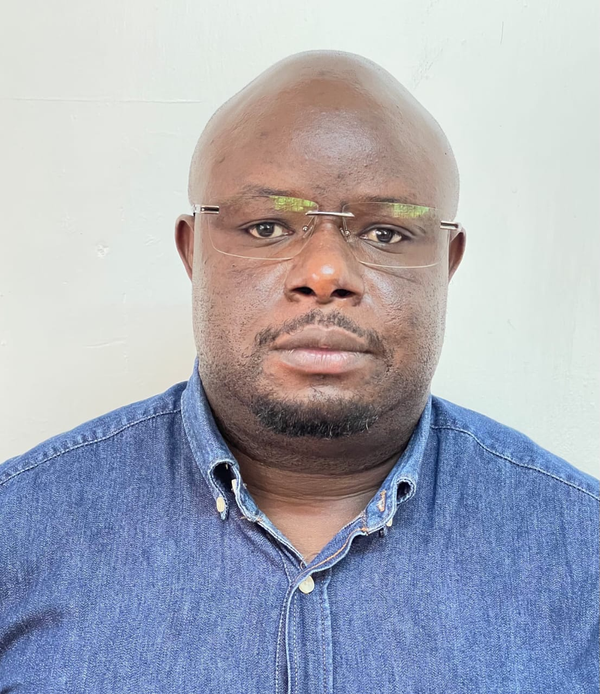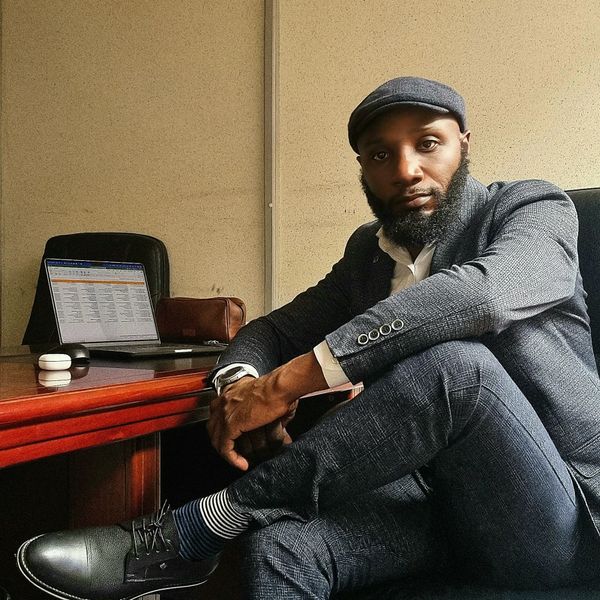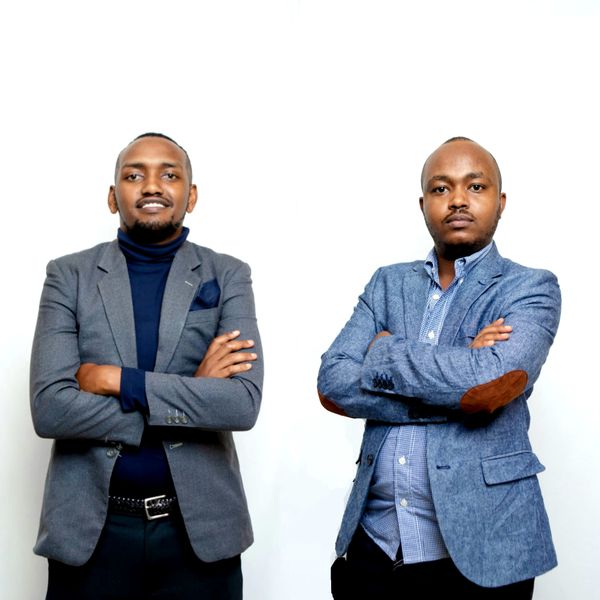Nairobi, Kenya
Evan Omondi went all in on a dream and failed — big time. He bet his entire future on making it as a pro in the NBA. Unfortunately, he came up short. Now, 13 years after walking away from basketball, he's the co-founding CTO of Afrigility, a B2B eCommerce fulfillment and warehousing platform that helps businesses better manage last mile delivery. His company, founded in 2022, recently joined The Baobab Network, showing the high regard in which it's held.
Afrigility runs on software that Omondi — a man who left high school with little knowledge outside of basketball — built himself. But how did he go from, in his own words, "rock bottom" at 23 to being "36 and living a crazy startup life"?
Playing to escape poverty — and pain
"When my mother spent a whole chunk of savings on my first pair of Air Jordans in high school, I knew I was destined to play in the NBA," Omondi reflects. "This was such a strong feeling for most of us who played in Kenya's best high school basketball team [Aquinas High]. We all talked about playing in the NCAA like Peter Kiganya or playing in the NBA."
Omondi's reasons for making it in the sport were only magnified before he'd graduated high school — from a big dream to a big necessity — when his mother passed away. "Basketball then became the only place I could escape the pain I had. It was all I knew."
Upon graduating, he was awarded a scholarship to play for Nairobi Jaffery Academy, an upscale private college with a strong sporting reputation. Having come from a modest background, life at a private college was an eye-opener. "It was night and day compared to the life I was used to. Moving from a neighborhood public school with limited resources to a private international school with students from all over the world. It exposed me to a lot of great things, like better sports equipment, talk of studying abroad — it was an entirely different side of Nairobi."
Indeed, Omondi's experience at an elite college, surrounded by dreamers and doers, only confirmed that he was on the right path to making it in professional basketball. "It cemented my belief that my dream was just a plane ticket away."
When he left college, he played in the Kenyan National League for Kenya Airports Authority and the Under 21 Men's International League, waiting for the call from the major leagues. But the only call that arrived delivered terrible news. "They told me I was too skinny," Omondi recalls. "I really tried changing, but there was only so much I could have done."
"These were sadly the same stories I would hear from many older Kenyan players I'd played with, who ended up working and just playing sports as a hobby. I never thought I would be one of them. In my mind, I was way better than them — faster and smarter."
"When it finally happened to me, I had to look for ways to put food on the table. I was 23, and it was one of those pivotal moments in my life where I had hit rock bottom but had to move on. The one thing I knew and trusted to get me out of poverty had failed miserably."
So Omondi walked away from the sport and began at the bottom, the only place within reach. In 2013, he took a job at a call center and started from scratch.
Starting from scratch
"It was a hard fall from popularity to picking calls at a call center." He admits. Omondi's singular focus on sport had left him deficient in even the most basic IT skills — not a great starting point for the modern working world. "I had to really learn new skills, like how to write and send an email, how to use MS Word and Excel - things I hadn't learned in school."
Like all great comeback stories, Omondi's determination to use failure as motivation made the difference: "It was frustrating when everyone else understood this [IT], and I didn't. This is actually what fueled me to get into innovation and programming. My competitive nature wouldn't allow me to be left behind, and I had to learn fast and get ahead of everyone. I remember I got so good within a few months that I was showing guys how to get past the company's strict firewall to view blocked websites!"
As luck would have it, that first call center job was on the Customer Support team at Jumia, now Kenya's largest online marketplace. Back then, the landscape looked much different in the Sub-Saharan eCommerce Market. The behemoths, Amazon, eBay, and Alibaba, had either tried and failed or failed to break into Africa altogether. In their absence, a coterie of homegrown players were stepping up, armed with a better understanding of their regions and multi-millions from VCs.
Fast forward to the present, and the African eCommerce industry is surging. Kilimall (Kenya), Takealot (South Africa), Jumia, and Konga (Nigeria) are some of the biggest names on the continent. The strength of the market and improved eCommerce infrastructure also mean that Amazon is knocking on the door to find new sources of growth.
Outside of work at the call center, Omondi had found a new passion in technology and data. Soon, these two new threads would intertwine. "[At Jumia], I learned a lot about the intricacies of eCommerce order management. It was a pivotal moment that made me realize a lot about that world and the tech involved. It was where I really discovered what computers could do, and I never went back to playing basketball."
Running before you can walk
Eager to further leverage his new skills as a developer, Omondi left Jumia and launched his first startup in the eCommerce space. But he soon found out he was a little wet behind the ears in the industry. "I'd taught myself how to program and started this company, but it was a bit of a naive move. At that time, there was still a lot that I hadn't grasped, so of course, it failed quite fast."
A capable programmer with a solid understanding of eCommerce emerged from the wreckage. "Retail companies were catching on to the digital boom, so that's where I went. I joined a fashion brand, basically as a website manager. But back then, people thought that if they built a website, orders would follow instantly!"
And so Omondi pivoted once more, this time from webmaster to eCommerce fixer. "I was basically told, 'Look, you've already done the content. Now make sure we get orders.' So that's what I did. I had to figure out how to get people on the site, but then I discovered another problem: These were big retail businesses, but we didn't have enough product to meet the demand because we were still a brick-and-mortar store."
"So I had to figure out a warehousing provider to take care of this, which was hard. I couldn't find anyone to figure out how to manage the lifecycle of an order in a warehouse. I had to step in myself and build a technology to support them."
It was this technology that would go on to form the basis of Afrigility.
A chance meeting
While delivering a talk on eCommerce at an industry event in 2019, Omondi was asked a question by a member of the audience, George Gichuhi, then CEO of ErrandsGuy Ltd, an online platform that provides freelance errands from shopping to tax returns, and crucially, package delivery. The pair met up after the event and became friends. By 2022, they would form part of the co-founding team behind Afrigility, where Gichuhi serves as CEO.
Gichuhi had spotted a gap in the market for solving problems in the last mile ecosystem. He was determined to digitize what his LinkedIn profile dubs "The unsexy Warehousing industry" and approached Omondi with an invite-cum-challenge. "He told me he wanted me to build software that manages last mile. I accepted, but he quickly also discovered that to solve last mile issues, the biggest challenge was warehousing. I'd already figured this out but hadn't seen the business opportunity. He did. He's a businessman."
With encouragement from his co-founders and George Gichuhi in particular, Omondi left his job as Growth Manager at the fulfillment platform Sendy and began developing a scalable tech solution for managing the logistical side of the eCommerce world. "We've essentially built a solution where you put your inventory in a network of warehouses that we manage through software. You can be sitting anywhere in the world, and we are taking care of your inventory needs in any region in this country, using one particular platform, and then distributing your products closer to your customers."
"We're standardizing warehousing and providing infrastructure in a suboptimal environment. If you come to a region like East Africa, warehousing is extremely fragmented. We mainly exist to help eCommerce companies, even legacy players like Amazon. When they plug into our ecosystem, it's ready for them to operate."
Omondi believes that Afrigility's competitive advantage is that its solution is technology, not physical properties. "We don't lease the warehouses on our network. We offer a path to profit for warehouse owners by bringing them into our ecosystem."

(Re)building confidence
Pondering his transformation from confident athlete to down-on-his-luck, nearly-made-it basketball player, to software engineer and now CTO at a pre-seed startup, one significant change that Omondi has noted along the way is his social behavior. Looking back, he can see that he'd been avoiding positive attention after walking away from his sporting career. "I used to be able to just disappear in a crowd, even though I'm six foot four! I had a long beard and looked pretty scrappy; I'd wear dark colors and just go around unseen."
While coding was his savior, it didn't make him more outgoing. "To be honest, as a technology guy, I'm naturally a quiet person. I was comfortable working at a computer and not talking to people. I would find myself getting stuck into what's on screen, staring at data, and figuring out problems. Even something like this — giving an interview — I never thought about just sharing my thoughts with an audience online."
That's all good for some, but he realizes that to help the company grow, he's had to become more outgoing and engaged with people and human connections. "It's so important to create connections for growth, meet people, make an impression on them, and gain customers and potential investors. I've also learned that communicating with founders of other companies is extremely important. Like, just opening up and expressing frustrations, worries, or thoughts in general. You quickly learn that we share a lot of things in common."
"My confidence has improved a lot over the years. I'm always looking for interesting conversations. I go to an event and actively seek out people I want to talk to. I'm no longer hiding in a crowd."
Persistent progress
Of course, the most effective way to build confidence is by earning it and validating your ability. That takes getting progressively better at something. And that takes persistence, even when things aren't going so well. Persistence is the golden thread that runs through every conversation with an entrepreneur who's taken a business from inception to reality.
"To be honest, there have been moments where we've hit the wall, where maybe a customer is taking so long to give us feedback or a lead just won't come through," he admits, "It's disheartening. You get very frustrated, and you think maybe you're not the one who's going to solve this particular problem. But then all of a sudden, the customer who you were talking to comes back a few weeks later and is like, 'Yeah, let's do this.'"
Omondi remembers meeting with Ken Njoroge, Co-founder and director of multinational digital payments platform Cellulant and one of Kenya's most celebrated entrepreneurs. A quick meeting left a lasting impression on Omondi's willingness to stay the course and celebrate the little wins. "He probably doesn't remember," he laughs, "But about five or six years ago, we were in his office, and he was telling us his story, all about his early life and the years before Cellulant. I realized he's also had to work through doubts and difficulties, especially at that early stage."
"It [Njoroge's story] still helps me check myself and realize what we're doing well and still need to do. Small increments mean a lot. Getting even one customer is a win and helps validate your product. That's a huge thing. Then it's about taking that and figuring out how to improve from there."
"That's the advice I'd give to early-stage entrepreneurs: It's never going to be easy. It's a matter of just sticking to your guns and improving as you go along."

